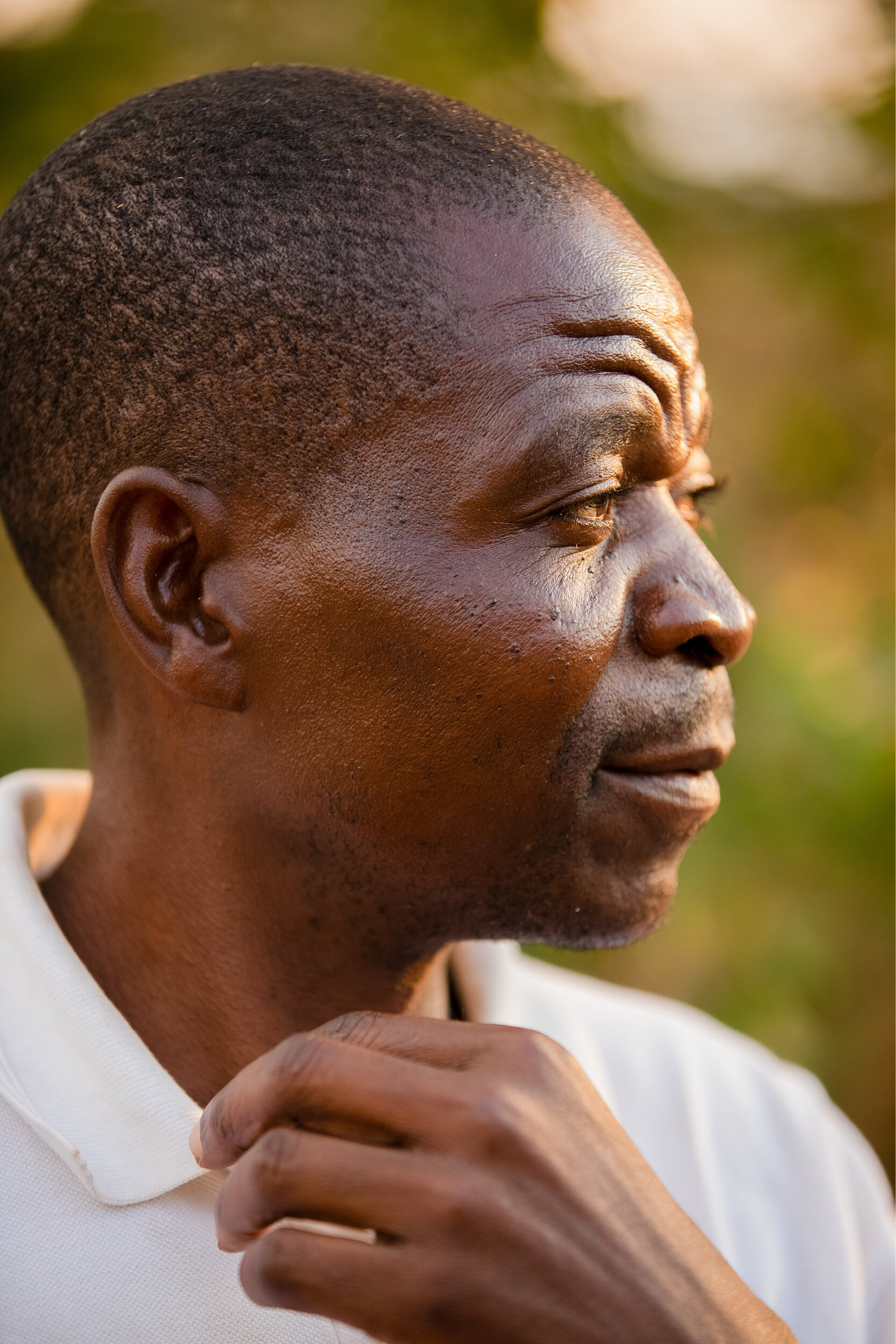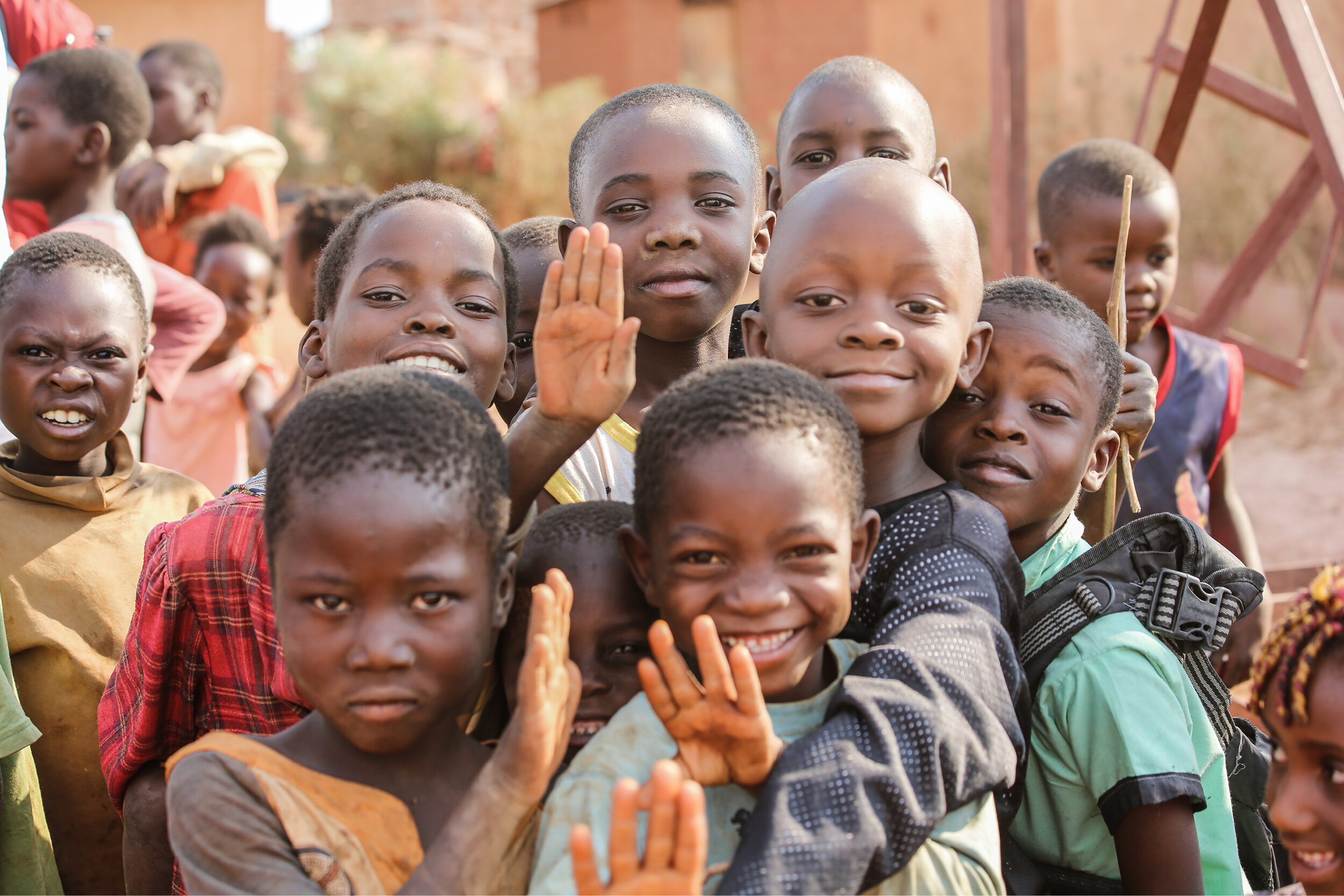Blood:Water exists because we believe that all human beings were created in God’s image and deserve basic rights: freedom, health, common decency, and tolerance just to name a few. Partnering with sub-Saharan African grassroots organizations, we can sometimes feel distant from the racial issues prevalent here in the US, but we have seen how stigma and prejudice of disease, poverty, and identity can impact people’s lives at the most atomic and subatomic levels. We are just as responsible as any other organization or person for making the world a better place for everyone starting at an individual level. Therefore, we condemn the acts of injustice perpetrated every day against Black Americans, whether intentional or not, systemic or overt, historic or current, in the US or abroad.
“A new command I give you: Love one another. As I have loved you, so you must love one another.”
-John 13:34
Ubuntu is an ancient southern African concept: “individuals exist only in relationship with other living beings: I am because we are. It is our responsibility as relatives to take care of one another,” (see “Can America Heal Its Racial Wounds? We Asked Desmond Tutu and His Daughter” by Yes! Magazine). Archbishop Desmond Tutu explains, “Ubuntu speaks about how we need each other. God, quite deliberately, has made us beings that are incomplete without the other. No one is self-sufficient.” Ubuntu then sums up the reason that forgiveness was central to their approach: we have to take care of each other in order to live because the Lord has ordained it.
South Africa was in a very different position than the US today and has a very different history, however looking at how they started the process of ending apartheid can give us some ideas for ways that we can make a sincere change in our communities and our society as a whole. Tutu is known for leading the Truth and Reconciliation Commission during the dismantling of apartheid in South Africa, preventing violence and anarchy that was expected from such a huge transition. Central to its operation was perpetrators embracing full honesty about wrongdoings and asking for amnesty from those harmed. Tutu’s daughter, Reverend Mpho Tutu says, “For it to work in the United States, there has to either be a willingness for both sides to engage in the process, or there needs to be some sort of carrot and some sort of stick. In South Africa, the Truth and Reconciliation Commission offered the carrot of amnesty to perpetrators, and the stick of possible prosecution.”
Admitting we are part of the problem does not mean that we are calling ourselves hateful or saying we are the same as those who actively seek to harm others. We may be part of the problem simply by choosing not to insert ourselves into the issue, thinking that it is someone else’s battle to fight. Maybe when someone has tried to explain the way they’ve been treated we have decided not to listen because we didn’t want to deal with it, or we found a reason to dismiss their legitimacy. The Archbishop reminds, “All of us have the capacity for the greatest possible evil. All of us! None of us can predict that under certain circumstances we would not be guilty of the most horrendous atrocities and cruelty. That is why, when they said in the newspapers that someone was a monster, I kept saying, ‘No. That person carried out monstrous acts.’ That person can change.” Saying that we will be allies means that we must acknowledge that there are ways we can be complicit without knowing it, but we can still do better than we have in the past.
Do we not all have one Father ? Did not one God create us? Why do we profane the covenant of our ancestors by being unfaithful to one another?
-Malachi 2:10
The Tutus warn however, that forgiveness does not mean forgetting and sweeping issues under the rug. To incite forgiveness, we must acknowledge the ways we have done wrong so that we can learn from them. This also requires action to change things – action that shows we have truly learned from our mistakes. We must listen to those who have been hurt and hear what they say needs to change, “or you’ll just be repeating the same cycle of the perpetrator, who is a top dog, prescribing,” (Desmond Tutu). There are ways that those of us who are not African American can never really understand what that experience is like, and all of the “hidden” ways we allow oppression to continue. We know how important it is to give local leaders vital resources to provide their communities with what they need. If we tried to step in with our limited knowledge, we would only change things in a superficial, temporary way that wouldn’t really address the problem long-term.
We look to the life of our Lord and Savior Jesus Christ to tell us how to lead our own lives, and we ask for guidance from the Lord and from everyone who has felt the oppression that has gone on since the beginning of our nation. We praise Him for showing us the light to be able to open our hearts to the stories of those who have been wronged, and we hope that we can be advocates for equality in ways that will contribute to changing our world for the better. Tutu writes,“I am very fortunate because I know that there are many people praying for me, and I am the recipient of the gift of their praying for me.” We would not be Blood:Water if we did not believe that even the smallest of organizations, the quietest of people, the child born with an incurable disease couldn’t make a difference in unprecedented ways. We offer everything we can to be better and to offer support in every possible way, although we know this is just the beginning of a long and arduous process to understand and overhaul the way our brothers and sisters in the US and around the world have had to live for far. too. long.
One of the teachers of the law came and heard them debating. Noticing that Jesus had given them a good answer, he asked him, “Of all the commandments, which is the most important? The most important one,” answered Jesus, “is this: ‘Hear, O Israel: The Lord our God, the Lord is one. Love the Lord your God with all your heart and with all your soul and with all your mind and with all your strength.’ The second is this: ‘Love your neighbor as yourself.’ There is no commandment greater than these. Well said, teacher,” the man replied. “You are right in saying that God is one and there is no other but him. To love him with all your heart, with all your understanding and with all your strength, and to love your neighbor as yourself is more important than all burnt offerings and sacrifices.” When Jesus saw that he had answered wisely, he said to him, “You are not far from the kingdom of God.” And from then on no one dared ask him any more questions.
-Mark 12:29-34
More Stories:
Categories







